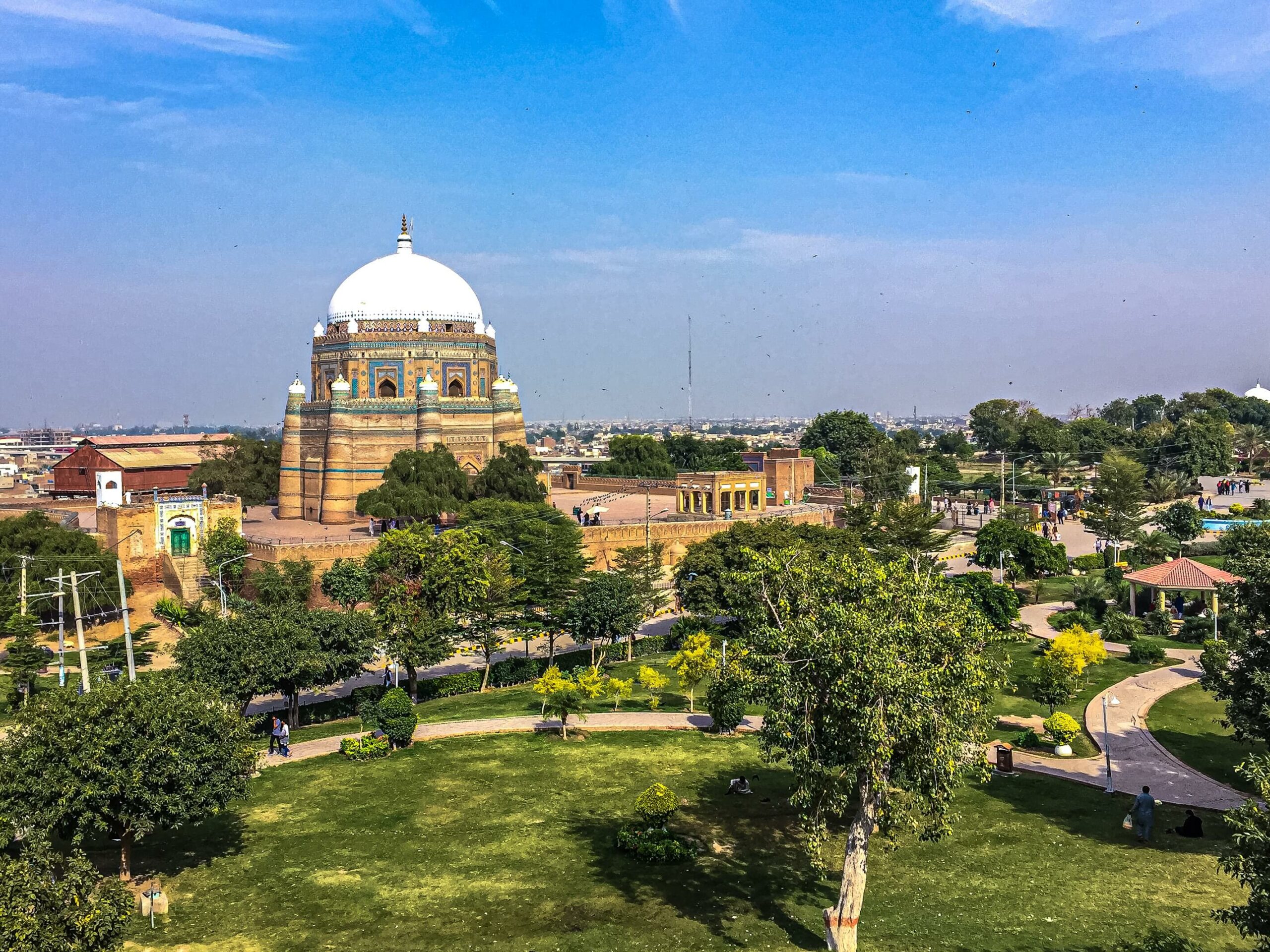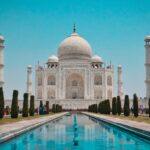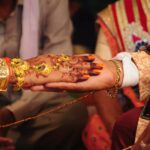Pakistan is a beautiful country with a blend of cultures that dates back to its link with the Indian subcontinent. Pakistani people follow many traditions from the Mughals in South Asia.
The extravagance and elegance of royal Mughals play a massive role in how Pakistani people throw weddings.
Pakistani weddings are long celebrations of the bride and groom. They celebrate each person individually, the combination of families, and more.
If you’re invited to a Pakistani wedding, brace yourself for a week of celebrations, love, and fun.
8 Pakistani Wedding Traditions and Rituals
There are so many things that make Pakistani weddings unique and beautiful events.
If you want to learn more about Pakistani culture, here are eight of the most popular Pakistani wedding traditions and rituals.
1. Dholki
Several days before the legitimate Pakistani wedding starts, the bride, groom, their families, and close friends will gather for a dholki. Close friends and family who don’t live in town will travel to the bride and groom’s homes and stay there until the end of the wedding festivities are over and participate in dholki functions.
During a dholki, everyone gathers in a circle on a floor with beautiful rugs and cushions to sing Pakistani wedding songs to the beat of a dholak. The grandmothers bless the bride and groom with prayers and well wishes.
Typically, the dholki traditions are separate, and the bride and groom each have their own. The dholki tradition allows for bonding with all the family members separately before the union.
2. Mehndi Night
You probably heard about mehndi night even if you know nothing about Pakistani weddings. Pakistani mehndi is famous for its intricacy and vibrancy. Mehndi night is one of the first Pakistani wedding traditions the bride will participate in, where she gets henna on her hand in mehndi designs.
Other women will spend time performing dances for the bride throughout the night while she gets her bridal henna finished. They spend weeks preparing the dances, and there’s plenty of music to fill the air. The henna takes quite a while, but patience and skill make it look stunning for her wedding day.
Brides typically wear a yellow mehndi dress, but they can wear whatever they want and wear little to no makeup throughout the process. They’ll have beautiful fresh flowers as their jewelry and plenty of orange flowers throughout the space. You’ll see delicious food served like halwa poori paan, barbeque, and other Pakistani delicacies.
3. Mayun
A Mayun is a Pakistani wedding tradition that is more important in certain parts of Pakistan than others but worth mentioning. This tradition occurs a few days before the wedding, where the female family members and friends surround the bride and perform various Pakistani rituals.
Some rituals include putting oil on the Pakistani bride’s hair and then ubtan on her arms, feet, and face. This ritual is rooted deeply in tradition and passed down from Pakistani ancestors. Usually, the ceremonies are performed chiefly by the grandmothers and other older adults because they’ve been through it before.
The Mayun represents preparing the bride for her wedding day, and Pakistani people believe it helps enhance her natural beauty. During the Mayun, the bride isn’t allowed to leave her house because they consider it bad luck. Not everyone follows that part strictly anymore, but elders are very superstitious about it.
4. Nikkah Ceremony
Before the incredibly fun receptions of Pakistani weddings can happen, the Nikkah ceremony needs to happen. The Nikkah ceremony is when the bride and groom sign the legal marriage contract. They get to choose at least two witnesses from both sides to witness the ceremony.
The Nikkah ceremony is an emotional time for the bride and her family because it’s officially her transition to her new life. Her name is now signed under the name of her new husband forever. This intimate event is only open to the couple’s immediate family members or close friends.
The attire for a Nikkah ceremony is pastel colors. The bride wears white and a red dupatta with a natural makeup look. The groom will wear a shalwar kurta that has a golden waistcoat.
5. The Barat
After the Nikkah comes to the Barat, this is a massive event in Pakistani weddings. The Barat is the day when the Pakistani groom and his family come to take the bride away. Sometimes, his friends will join in the tradition. The bride’s family arranges the event, so it’s not as aggressive as it might sound for the groom to “take her away.”
A modern-day Barat is hosted at a large wedding hall with delicious food and many photo opportunities. The Barat is a massive event with hundreds of guests, but they can be smaller depending on the preferences of both families.
The groom will wear a traditional sherwani while the bride is in an Anarkali lehenga dress. More minor traditions are scattered throughout the Barat ceremony, many of which are personal to the bride and groom’s family members. It’s a fun event that all enjoy, regardless of whether the guests are Pakistani or not.
6. Rukhsati
Once the Barat is over, the Rukhsati happens. While this is a major tradition in Pakistani culture, Rukhsati is a sad day for the bride despite the excitement and happiness that her new marriage is bringing her. It’s a ceremony all about her leaving her parent’s home and leaving behind her childhood memories.
The bride and groom will leave the venue at the same time in the presence of their elders. It’s like a send-off, and it’s basically the bride’s family giving her permission to start a new chapter in her life.
The parent’s bride will give her away with the Holy Quran above her head. This symbolizes them sending their daughter off to her husband with the blessing and protection of Allah. So, while the bride’s family is very emotional, feeling sad and happy simultaneously, the groom’s family is elated.
7. Walima
Walima is the final event of any Pakistani wedding, which is what Western cultures call the reception. Usually, Valimas has a comfortable atmosphere with beautiful flowers and lighter-colored decor. Unlike the big parties many people have, the music is quieter at a Walima.
The music is quieter at this reception to allow everyone to mingle and bond over their happiness for the couple. Everyone dresses in formal attire like suits and dresses in light colors with extravagant jewelry. The groom is in charge of organizing the Valima, which stems from Islam’s religious traditions.
Usually, they throw this the day after the Barat or several days after, whatever is more convenient for both families. Grooms wear a two or three-piece suit, and the bride wears a sharara in a pastel color. As with most traditions in Pakistani weddings, this is a very long reception and symbolizes the happiness the new marriage should bring the couple.
8. Ubtan
The Ubtan, or Haldi ceremony, is a traditional ceremony similar to an Indian spa day. It’s an essential part of the wedding that allows the bride and groom to feel and look their absolute best on their wedding day. Typically, the Ubtan ceremony will occur the day before the wedding, but this can vary.
The tradition of this ceremony before weddings dates back to when modern-day spas didn’t exist. People will pamper the bride by applying turmeric or Haldi on the bride’s face and body. The people who do this are very close friends and family to the bride.
The bride will sit on a wooden stool while loved ones make turmeric paste with almond oil, sandalwood powder, gram flour, milk, and rose water. The groom’s family sends the turmeric paste to the bride’s family to apply.
Frequently Asked Questions
If you want to be the best guest at a Pakistani wedding or learn more about their customs and traditions, here are some additional questions others ask about Pakistani weddings.
How Many Days Does a Pakistani Wedding Last?
The bride, groom, and their families will have a week to prepare for the main event. For guests, you can expect a traditional Pakistani wedding to last for three days with three main events. Some people add smaller events in between for close friends and family, but it’s all dependent on the bride, groom, and their families.
Who Pays for a Pakistani Wedding?
Traditionally, the bride’s father is the one who pays for the extravagant wedding. Sometimes other members of the bride’s family will pitch in, and even sometimes, the groom’s family, but that’s for more non-traditional Pakistani weddings. There are certain traditions that the groom plans, which he will pay for, or his family.
What Should You Wear to a Pakistani Wedding as a Guest?
You should always consult with the wedding invitation for attire, but traditionally, women will wear Pakistani dresses with heavy embroidery. Mainly, female guests will wear a Sharara. Men can generally wear a Western-style suit or tuxedo. Be sure to check with your wedding invitation for an official attire suggestion.




